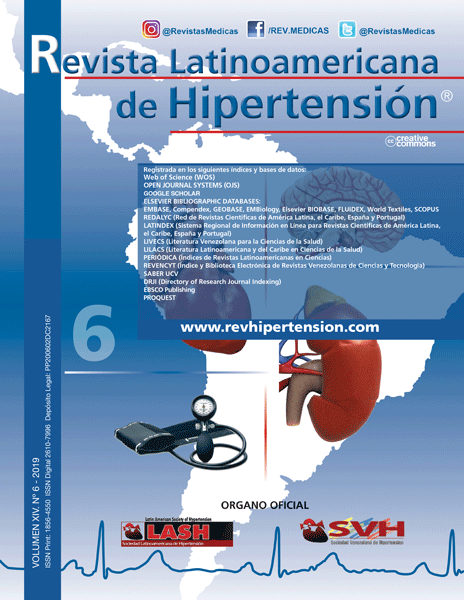Diabetic retinopathy pattern among Kurdish diabetic patients in the Kurdistan region of Iraq
Palabras clave:
diabetes, diabetes duration, diabetic retinopathy, diabetic retinopathy pattern, diabetes prevalenceResumen
Background and objective: Diabetes has been reportedto be quite prevalent all over the world. Blindnessamong diabetic patients has been reported to be relatedto diabetic retinopathy. By investigating diabetic patientsattending the Sulaimani diabetic center, this study triesto specify the prevalence and diabetic retinopathy patternamong such patients.Method: Diabetic patients who were presented at theSulaimani diabetic center were chosen for obtainingknowledge on biodata information of patients, level andduration of diabetes disease and also gaining knowledgeon eye examination findings. The examination ofeye fundus was conducted with Volk +90 diopter lensby means of slit lamp microscope. The retinopathy wasclassified through the International Clinical Disease SeverityScale for Diabetic Retinopathy. All collected datawere analyzed by Statistical Package for the Social Sciencesversion 22.Results: A total of 393 patients consisting of 279 femalesand 114 males were examined. Their ages wereranged from 12 to 83 years with a mean of 56.1 years.About 7.6% of them were on insulin therapy, 69% tookoral antihyperglycemic agents, 21.4% use a mixture ofthese therapies and the remaining 2% did not take anytreatments. Based on the results of this study, 33.2%of the patients had retinopathy, such that 5.6%, 6.4%,5.6% and 5.6% of them had mild, moderate, severe nonproliferative and proliferative retinopathy, respectively.Moreover, a strong association was observed betweenincreased HbA1c level of diabetic patients and their apparentretinopathy. In addition, the pathological conditionof maculopathy was observed in 5.6% of diabetic patients.In about 44% of the diabetic patients, high bloodpressure was observed, of whom 8.7% represented tohave cardiovascular diseasesConclusion: The outcomes of this study demonstratedthat the prevalence rate of diabetic retinopathy (DR)with long duration among Iraqi Kurdish diabetic patientsis high. Diabetic retinopathy could cause visual disability.On the other hand, diabetes would increase the possibilityof blindness as a result of other eye diseases likeglaucoma and cataracts. Consequently, for more precisediagnosis and also decreasing the happened damagesdue to diabetes a standardized screening programmust be applied.Descargas
Los datos de descargas todavía no están disponibles.

